Links to external sources may no longer work as intended. The content may not represent the latest thinking in this area or the Society’s current position on the topic.
Foundations of quantum mechanics and their impact on contemporary society
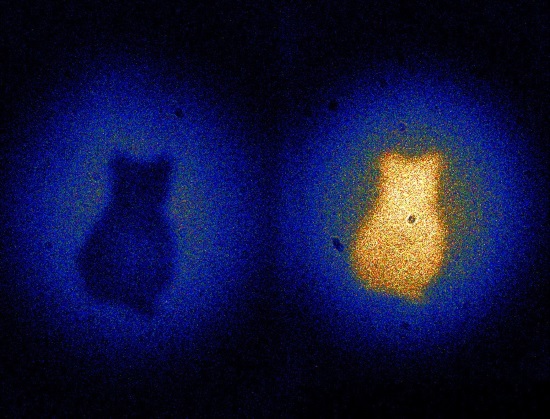
Scientific discussion meeting organised by Professor Gerardo Adesso, Dr Rosario Lo Franco and Dr Valentina Parigi.
Revolutionary quantum phenomena like superposition, wave-particle duality, uncertainty principle, entanglement and non-locality are today well-established, albeit continuing debates remain about the profound understanding of their manifestation. Further, these concepts have been enabling a quantum technological revolution. This meeting aims at gathering the most relevant recent advances on the foundations of quantum mechanics, highlighting their multidisciplinary impact on contemporary society.
Speaker abstracts and biographies are available below. Recorded audio of the presentations will be available on this page after the meeting has taken place. Meeting papers will be published in a future volume of Philosophical Transactions A.
Enquiries: contact the Scientific Programmes team
Organisers
Schedule
Chair
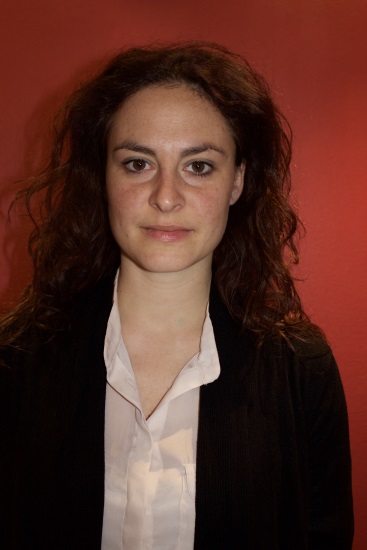
Dr Valentina Parigi, Laboratoire Kastler Brossel, Sorbonne Université, France

Dr Valentina Parigi, Laboratoire Kastler Brossel, Sorbonne Université, France
Valentina Parigi obtained her PhD at LENS (European Laboratory for Non-Linear Spectroscopy) in Florence in 2009. During her PhD she worked on generation, manipulation and characterisation of non-classical states of light and she realised the first experimental test on quantum commutation rules. As a post-doc she has been involved in the experimental realisation of strong non-linear effects mediated by Rydberg atoms at the Institut d’Optique in Palaiseau and she worked in the atomic quantum memory group at Laboratoire Kastler Brossel (LKB) in Paris. In 2015 she joined the Multimode Quantum Optics team at LKB as Associate Professor. Her interests range from the foundations of quantum mechanics to the experimental implementation of basic tools for quantum information technologies. She is currently involved in the implementation of complex quantum networks in a multi-mode continuous-variables scenario (http://www.lkb.upmc.fr/quantumoptics/quantum-complex-networks/) supported by an ERC Consolidator Grant.
| 09:00 - 09:05 |
Welcome by the Royal Society and Gerardo Adesso
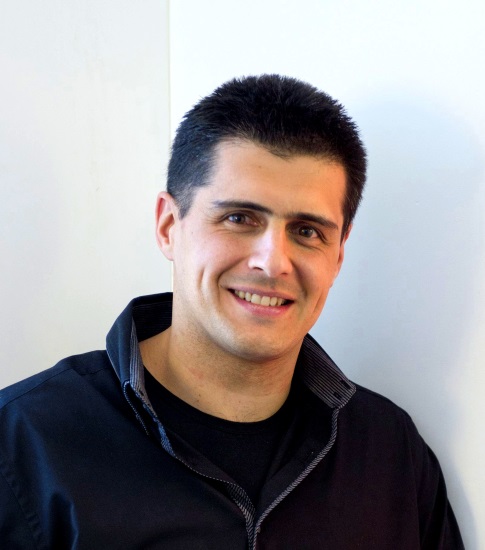
Professor Gerardo Adesso, University of Nottingham

Professor Gerardo Adesso, University of NottinghamGerardo Adesso is fascinated by the elusive border between quantum and classical descriptions of the world. He got his PhD in Physics at University of Salerno (Italy) in 2007, working on characterisation and applications of entanglement in continuous variable quantum systems. After a post-doctoral experience at Universitat Autonoma de Barcelona (Spain), he joined University of Nottingham as a Lecturer in 2009. His recent research has been pioneering in unveiling resources for quantum technology that are more general and robust than entanglement, challenging the two-decade-old separability paradigm. Gerardo is now a Professor of Mathematical Physics at Nottingham and leads a research team working on all aspects of quantum correlations and coherence (http://quantumcorrelations.weebly.com), supported by an ERC Starting Grant and further awards from Royal Society and Foundational Questions Institute. His current interests extend to more applied subjects ranging from quantum information & communication technologies to sensing & metrology, thermodynamics, and beyond. |
|
|---|---|---|
| 09:05 - 09:35 |
Recovering the quantum formalism from physically realist axioms
We present a heuristic derivation of Born's rule and unitary transforms in Quantum Mechanics, from a simple set of axioms built upon a physical phenomenology of quantisation. This approach naturally leads to the usual quantum formalism, within a new realistic conceptual framework that is discussed in details. Physically, the structure of Quantum Mechanics appears as a result of the interplay between the quantised number of "modalities" accessible to a quantum system, and the continuum of "contexts" that are required to define these modalities. Mathematically, the Hilbert space structure appears as a consequence of a specific "extra-contextuality" of modalities, closely related to the hypothesis of Gleason's theorem, and consistent with its conclusions. 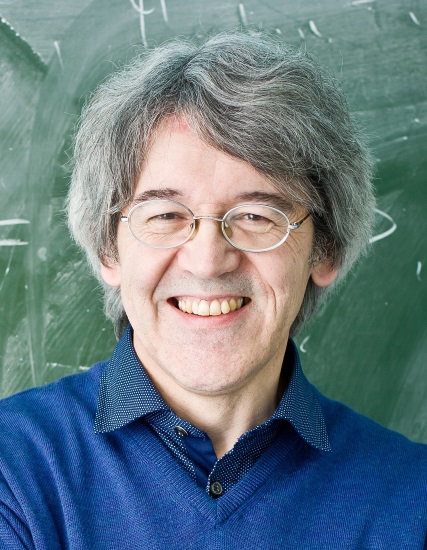
Professor Philippe Grangier, Insitute d'Optique Palaiseau

Professor Philippe Grangier, Insitute d'Optique PalaiseauPhilippe Grangier is head of the Quantum Optics group at Institut d'Optique in Palaiseau, France, and Professor at Ecole Polytechnique. He started his research activity in 1980, on experimental tests of Bell’s inequalities, with Alain Aspect as advisor. Then he worked on single-photon interferences (PhD thesis), and interferometry using squeezed light (postdoc in Bell Labs, 1987). After creating his own group, he realised a series of quantum optics experiment during the 1990’s, including optical QND measurements. Then from 2000 he performed many experiments related to Quantum Information Processing: single atom qubits in microscopic optical tweezers, quantum cryptography using single photons or continuous variables, entanglement control in atomic and photonic quantum states. He authored more than 200 publications, and his achievements have been recognised by many national and international awards, including an Advanced Grant from the European Research Council (ERC). |
|
| 09:35 - 09:50 | Discussion | |
| 09:50 - 10:20 |
Relational quantum mechanics: understanding with 'relations' versus understanding with 'things'
This talk will illustrate the relational interpretation of quantum theory, and compare the conceptual 'cost' it requires us to assume with the conceptual 'cost' demanded by the main other interpretations of the theory. It will discuss the philosophical and general implication of understanding quantum theory in this manner. 
Professor Carlo Rovelli, Aix-Marseille University

Professor Carlo Rovelli, Aix-Marseille UniversityCarlo Rovelli is a theoretical physicist. He was born in Verona, Italy, has worked in several university in Italy; the US and France and is currently directing the quantum gravity group of the Centre de Physique Theorique de Luminy in Marseille. He is member of the Institut Universitaire de France and the International Academy for the Philosophy of Science. Among his honors are the Xanthopoulos Prize, the honorary Professorship at the Normal University of Beijing and and the Laurea Honoris Causa of the University of Saint Martin in Buenos Aires. His main contributions are in Loop Quantum Gravity, on the foundations of Quantum Mechanics and on the study of Time. He has also published for the large public: his book Seven Brief Lesson on Physics, in particular, has been translated in more than 40 languages. |
|
| 10:20 - 10:35 | Discussion | |
| 11:05 - 11:35 |
Quantum automata field theory: derivation of mechanics from algorithmic principles
This talk will briefly review a recent derivation of quantum theory and free quantum field theory from purely information-theoretical principles, leading to an extended theory made with quantum walks. We will focus on the causality principle for quantum theory, and show that its notion coincides with the usual Einstein’s one in special relativity. It will then see how Lorentz transformations are derived from just our informational principles, without using space-time, kinematics, and mechanics. The Galileo relativity principle is translated to the case of general dynamical systems. The resulting invariance group is a nonlinear version of the Lorentz group (the automata theory is thus a model for the so-called "doubly special relativity"), and the usual linear group is recovered in the small wavevector regime, corresponding to the physical domain experimented so far. The notion of particle is still that of Poincaré invariant. New interesting emerging features arise that have a General-Relativity flavour. 
Professor Giacomo Mauro D'Ariano, University of Pavia

Professor Giacomo Mauro D'Ariano, University of PaviaGiacomo Mauro D’Ariano is full professor of Theoretical Physics at Pavia University, and leader of the Quantum Information Theory Group “QUit”. He teaches Quantum Mechanics and Foundations of Quantum Theory. He is Fellow of the American Physical Society and of the Optical Society of America, member of the Academy Istituto Lombardo of Scienze e Lettere, of the Center for Photonic Communication and Computing at Northwestern IL, and of the Foundational Questions Institute (FQXi). Mauro pioneered quantum information in Italy and later, with his disciples Chiribella and Perinotti, he derived Quantum Theory from information-theoretic principles, the topic of a book published by Cambridge. More recently he has opened the way to extend the informational paradigm to the derivation of Quantum Field Theory. Mauro is also actively interacting with philosophers, aimed at creating a "Milano circle" on philosophy of science, with strong focus on scientific method and the issue of realism.
|
|
| 11:35 - 11:50 | Discussion | |
| 11:50 - 12:20 |
Complementarity and uncertainty: what remains?
Complementarity and uncertainty were two ideas in the early development of quantum mechanics. Famously, Bohr and Heisenberg introduced them separately, after they took a break from a series of intense discussions in Copenhagen in 1927. They both worked at a rather heuristic level, and public presentations of their ideas still tend to reflect this early style and the sense of paradox, which the original authors cherished so much. On the other hand, also in 1927, the theory took mathematical shape at the hands of von Neumann, which made wave particle dualism obsolete, and opened up the possibility of turning the heuristic ideas of Heisenberg and Bohr into general, quantitative and falsifiable statements. For uncertainty this process also began in 1927, when Kennard and Weyl fulfilled Heisenberg's promise that the uncertainty relations could be proved from the basic assumptions of the theory. The disturbance-accuracy tradeoff took much longer, but is today also firmly established. The role of complementarity changed in a general process of sharpening of interpretation. Today the operational content of quantum mechanics and its statistical framework is very clear. It can be applied and taught with confidence without taking recourse to Bohr's elaborate complementary doublethink. Yet the old idea still has an important if somewhat demystified place. In the talk this place will be pointed out and some continuity with origins established. 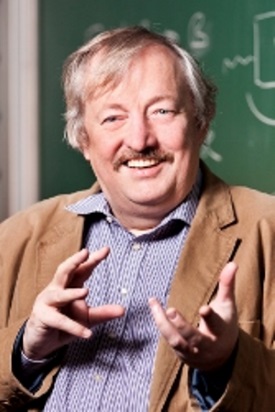
Professor Reinhard F Werner, Leibniz University of Hannover

Professor Reinhard F Werner, Leibniz University of HannoverReinhard F Werner is currently Physics professor at the Institute for Theoretical Physics, Leibniz University Hannover. He is interested in the conceptual and mathematical foundations of quantum theory. Anything, in which the structure of quantum mechanics plays a non-trivial role. In recent years, he has mostly applied his interests in quantum information theory, but also quantum statistical mechanics and the theory of time in quantum mechanics. As a mathematical physicist, he also tries to answer questions regarding generally observed features of the theory, like for instance the approach of equilibrium in macroscopic systems, at their appropriate level of generality. He is the recipient of the International Quantum Communication Award, for for his foundational contributions to the field of quantum information: especially quantum entanglement and nonlocality, quantum Shannon theory, quantum memory channels, and quantum cellular automata. |
|
| 12:20 - 12:35 | Discussion |
Chair
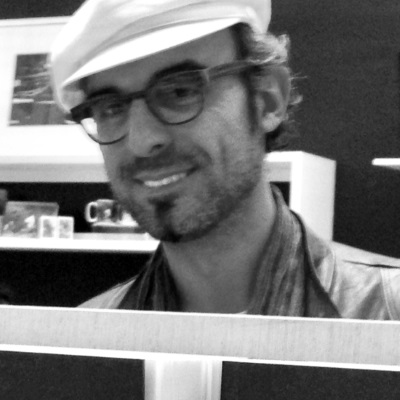
Dr Rosario Lo Franco, University of Palermo

Dr Rosario Lo Franco, University of Palermo
After his PhD in theoretical physics from the University of Palermo, Rosario held positions at the University of Catania, the National Interuniversity Consortium for the Physical Sciences of Matter (CNISM), the University of Nottingham and University of São Paulo. He is currently researcher, Physics professor and member of the doctorate board at the Department of Energy, Information Engineering and Mathematical Models of the University of Palermo.
Rosario is often a speaker at popular events to disseminate academic research. He is recipient of the Sentinels of Science Award 2016 from Publons and of outstanding reviewer awards from New Journal of Physics and Annals of Physics. He is a scientific evaluator for funding agencies (FONDECYT Chile; Programme SASPRO, Slovak Academy of Sciences; FP7-Marie Curie COFUND) and member of the Editorial Board of Scientific Reports (Nature Publishing Group).
His main research contributions concern the dynamics of quantum correlations in open systems and most recently the characterisation of composite systems of indistinguishable particles.
See Rosario’s webpage: http://rosariolofranco.weebly.com/.
| 13:30 - 14:00 |
Thermodynamics as a consequence of information conservation
We formulate thermodynamics as an exclusive consequence of information conservation. The framework can be applied to most general situations, beyond the traditional assumptions in thermodynamics, where systems and thermal-baths could be quantum, of arbitrary sizes and even could posses inter-system correlations. Further, it does not require a priory predetermined temperature associated to a thermal-bath, which does not carry much sense for finite-size cases. Importantly, the thermal-baths and systems are not treated here differently, rather both are considered on equal footing. This leads us to introduce a "temperature"-independent formulation of thermodynamics. We rely on the fact that, for a given amount of information, measured by the von Neumann entropy, any system can be transformed to a state that possesses minimal energy. This state is known as a completely passive state that acquires a Boltzmann-Gibbs canonical form with an intrinsic temperature. We introduce the notions of bound and free energy and use them to quantify heat and work respectively. We explicitly use the information conservation as the fundamental principle of nature, and develop universal notions of equilibrium, heat and work, universal fundamental laws of thermodynamics, and Landauer's principle that connects thermodynamics and information. We demonstrate that the maximum efficiency of a quantum engine with a finite bath is in general different and smaller than that of an ideal Carnot's engine. We introduce a resource theoretic framework for our intrinsic-temperature based thermodynamics, within which we address the problem of work extraction and inter-state transformations. 
Professor Andreas Winter, Autonomous University of Barcelona

Professor Andreas Winter, Autonomous University of BarcelonaAndreas Winter received a Diploma degree in Mathematics from Freie Universität Berlin, Berlin, Germany, in 1997, and a Dr. math. degree from the Fakultät für Mathematik, Bielefeld University, Germany, in 1999. He was Research Associate at Bielefeld University, and from 2001 with the Department of Computer Science at University of Bristol, UK In 2003, still with University of Bristol, he was appointed Lecturer in Mathematics, and in 2006 Professor of Physics of Information. Since 2012 he is ICREA Research Professor with the Universitat Autònoma de Barcelona, Spain. He is the recipient of a Royal Society Wolfson Research Merit Award (2007), a Philip Leverhulme Prize (2009) and the Whitehead Prize of the London Mathematical Society (2012). Andreas Winter's scientific interests revolve around quantum information theory and discrete mathematics, in particular quantum Shannon theory. He is the originator of several technical and conceptual innovations in that field, among them the discovery of state merging as a primitive and the meaning of negative information; the application of geometric measure concentration in quantum information and statistical mechanics; the development of a matrix tail bound à la Bernstein with numerous applications in information theory, signal processing and combinatorics; techniques towards strong converses and "pretty strong" converses in quantum Shannon theory; quantum entropy inequalities; and the development of zero-error quantum information theory, including an interpretation of the Lovász number as the zero-error capacity of a graph assisted by no-signalling correlations. |
|
|---|---|---|
| 14:00 - 14:15 | Discussion | |
| 14:15 - 14:45 |
The quantum nature of time and the origin of dynamics
Dynamics is incorporated in physical theories through conservation laws and equations of motion. It is conventionally assumed to be an elemental part of nature – as existing without question. If, however, conservation laws and equations of motion were found to be due to a deeper cause, our understanding of time would need to be revised at a fundamental level. This talk will show how the violation of time reversal symmetry (T violation) of the kind observed in K and B meson decay might be such a cause. It will use a new quantum theory that treats time and space equally. If there is no T violation, the theory allows a material object to be localised in both space and time, i.e. the object would exist only in a small region of space and in a small interval of time. As the object would not exist before or after the time interval, there is no equation of motion and no conservation laws. The elementary assumption of dynamics is clearly absent here. However, the same formalism is dramatically different when T violation is present: the T violation makes it impossible for the object to be localized at any one time. Moreover, the object follows an equation of motion and conservation laws are obeyed. As such, dynamics emerges in the new theory as a consequence of T violation. This talk will discuss how local variations in T violation might be used to test predictions of the new theory. 
Associate Professor Joan Vaccaro, Griffith University

Associate Professor Joan Vaccaro, Griffith UniversityJoan Vaccaro is a physicist at Griffith University. Her research interests encompass a range of topics in quantum physics. She is naturally attracted to deeper conceptual issues but she also maintains an active interest in developing practical applications such as efficient energy storage systems. Her most challenging research project, however, is the physics of time. Although time has been a subject of contemplation since the time of the ancient Greek philosophers, there have been few advances in our understanding of the physical nature of time itself. The only significant advances to the way that time is represented in physics are by Isaac Newton in the 1600’s and Albert Einstein in the early 1900’s. An experimental verification of a measurable signature of Joan’s quantum formalism of time would push our understanding one step further. |
|
| 14:45 - 15:00 | Discussion | |
| 15:30 - 16:00 |
Dealing with indistinguishable particles and their entanglement
In quantum mechanics, a complete set of commuting observables is the only requirement to determine the state of a quantum system. An exception to this rule holds for systems of indistinguishable identical particles where non-observable quantities (labels), that render the particles distinguishable, are introduced from the start: a procedure needing restrictions on the admissible states and observables to avoid the direct physical manifestation of the labels. Yet when quantum correlations, in particular entanglement, among identical particles are taken into consideration, labels give rise to a spurious part of correlations. Distinguishing the latter from the real part of entanglement, which is the very resource for quantum information processing, has remained debated, notwithstanding the fact that systems employed for quantum technologies typically involve identical particles as elementary building blocks. In addition, notions ordinarily used to analyse entanglement for non-identical particles are not applicable to identical particles. This talk will discuss a novel approach to describe identical particles in quantum mechanics where non-observable quantities are never introduced. It will show that its advantage, besides the methodological aspects, lies in the capacity of only dealing with physical entanglement. Moreover, the usual notions, such as partial trace, Schmidt decomposition and von Neumann entropy, are used to measure entanglement for both non-identical and identical particles. Finally, it will prove that this approach makes it emerge the identity of particles as a new source of operational entanglement which is directly utilizable for quantum information tasks.

Professor Giuseppe Compagno, University of Palermo

Professor Giuseppe Compagno, University of PalermoGiuseppe Compagno, got his degree in Physics (cum Laude) at the University of Palermo where he is currently Associate Professor of Theoretical Physics. Initially his research was in X-ray Astrophysics (at American Science and Engineering (ASE) of Cambridge, Mass. directed by R. Giacconi). Then, he worked in Quantum Optics (dynamics of coherent states of matter and radiation in interaction and resonance fluorescence) and Quantum Electrodynamics (QED) where developed the theory of atoms dressed by vacuum fluctuations. He is co-author of the book: “Atom Field Interactions and Dressed Atoms”, Cambridge University Press (1995). He has also worked on the problem of measurement, localization and causality in QED and Quantum Field Theory. Successively he focused on the decoherence of matter-radiation interaction, showing the revivals of entanglement in systems within non-Markovian environments. Recently he has developed a non-standard approach to deal with identical particles end their entanglement. |
|
| 16:00 - 16:15 | Discussion | |
| 16:15 - 16:45 |
Quantum Mechanics under test along Space channels
The paradigm shift that Quantum Communications represent versus classical counterpart allows envisaging the use of the qubits as a probe for fundamental tests of Quantum Mechanics and Gravity on a scale beyond terrestrial limits. We shall report on the extension of the Quantum Communications and Technologies to long distances, on the surface of the Earth as well as from the Earth to an orbiting terminal in Space. This is influenced by hurdles as the large losses, the effects on the optical propagation of the turbulent medium and the relative motion of terminals. Nevertheless, it was possible to demonstrate the Quantum Communications with Low-Earth-Orbit satellites using polarization degree of freedom to encode the qubits. This was later exteded to temporal modes of a qubit, to demonstrate the quantum interference along a Space channel will be also described. The recent results on the extension to Space of the Gedankenexperiment proposed by John Wheeler on the wave-particle duality, then about the very nature of the quantum entities, will be described.

Professor Paolo Villoresi, University of Padova, Italy

Professor Paolo Villoresi, University of Padova, ItalyBorn in Treviso, Italy, in 1962, he studied Physics and Applied Mathematics at the University of Padova. He is a Full Professor of Physics (Professore Ordinario) at the University of Padova, where he currently teaches Quantum Optics and related subjects. Author of more than a hundred publications on peer-refereed journals, including Nature and Science, on encyclopaedia and editor of 2 books. Coauthor of more than 200 congresses. |
|
| 16:45 - 17:00 | Discussion | |
| 17:00 - 18:15 | Poster session |
Chair

Professor Gerardo Adesso, University of Nottingham

Professor Gerardo Adesso, University of Nottingham
Gerardo Adesso is fascinated by the elusive border between quantum and classical descriptions of the world. He got his PhD in Physics at University of Salerno (Italy) in 2007, working on characterisation and applications of entanglement in continuous variable quantum systems. After a post-doctoral experience at Universitat Autonoma de Barcelona (Spain), he joined University of Nottingham as a Lecturer in 2009. His recent research has been pioneering in unveiling resources for quantum technology that are more general and robust than entanglement, challenging the two-decade-old separability paradigm. Gerardo is now a Professor of Mathematical Physics at Nottingham and leads a research team working on all aspects of quantum correlations and coherence (http://quantumcorrelations.weebly.com), supported by an ERC Starting Grant and further awards from Royal Society and Foundational Questions Institute. His current interests extend to more applied subjects ranging from quantum information & communication technologies to sensing & metrology, thermodynamics, and beyond.
| 09:00 - 09:30 |
Causality in a quantum world
One of the most deeply rooted concepts in science is causality: the idea that events in the present are caused by events in the past and, in turn, act as causes for what happens in the future. If an event A is a cause of an effect B, then B cannot be a cause of A. The possible interplay between quantum theory and general relativity may, however, require superseding such a paradigm. I will review the framework of “process matrices”, which allows describing “superpositions of causal order”, where one cannot say that A is before or after B. The framework reduces to the standard quantum formalism whenever the causal order is fixed. I will show that indefinite causal structures offer advantage in communication and computation, and discuss their realisation in the gravitational field of a massive object in a spatial superposition. 
Professor Caslav Brukner, University of Vienna, and Institute for Quantum Optics and Quantum Information (photo by Fetzer Franklin Fund)

Professor Caslav Brukner, University of Vienna, and Institute for Quantum Optics and Quantum Information (photo by Fetzer Franklin Fund)Caslav Brukner is Full Professor for “Quantum foundations and quantum information theory” at the University of Vienna, Austria and the director of the Institute of Quantum Optics and Quantum Information in Vienna (IQOQI-Vienna). He received his MSc degree in Physics from the University of Vienna (1995) and earned a Doctor of Technical Sciences from the Vienna University of Technology (1999). He has held positions at the Imperial College London (Marie Curie Fellow, 2004), Tsinghua University in Beijing (Chair Professor, 2005-2008), University of Belgrade, Serbia (Visiting Professor, since 2008) and at the International Institute of Physics in Natal, Brazil (Distinguished Visiting Full Professorship, since 2017). His primary research interests are foundations of quantum physics and quantum information theory. He contributed to information-theoretical reconstruction of quantum mechanics, research on the quantum-to-classical transition, derivation of the general Bell inequality, and more recently, to formulation of quantum mechanics on indefinite causal structures. |
|
|---|---|---|
| 09:30 - 09:45 | Discussion | |
| 09:45 - 10:15 |
Locality and quantum mechanics
Bells theorem has caused many to argue that quantum mechanics must be a non-local theory. Using a generalisation of a Hardy setup, this talk will argue that Quantum Mechanics is a local theory, but then obviously not a realistic theory. 
Professor William G Unruh FRS, University of British Columbia, Canada and Texas A&M University, USA

Professor William G Unruh FRS, University of British Columbia, Canada and Texas A&M University, USABorn in Winnipeg, and received his PhD from John Wheeler at Princeton University, he has been working on the overlap between gravity and quantum for his career. He has worked on black hole absorption, and radiation, how particles arise in Quantum Field theory, quantum effects in gravitational wave detection, testing quantum gravity in flowing fluid analogues, foundations of quantum mechanics, and many other like topics. |
|
| 10:15 - 10:30 | Discussion | |
| 11:00 - 11:30 |
Operational locality
Within a global physical theory, a notion of locality allows us to find and justify information-processing primitives, like non-signalling between distant agents. Here we propose exploring the opposite direction: to take agents as the basic building blocks through which we test a physical theory, and recover operational notions of locality from signalling conditions. First we introduce an operational model for the effective state spaces of individual agents, as well as the range of their actions. We then formulate natural secrecy conditions between agents and identify the aspects of locality relevant for signalling. We discuss the possibility of taking commutation of transformations as a primitive of physical theories, as well as applications to quantum theory and generalised probability frameworks. This "it from bit" approach establishes an operational connection between local action and local observations, and gives a global interpretation to concepts like discarding a subsystem or composing local functions. We relate out approach to other topics of research in machine learning and swarm robotics. 
Dr Lidia del Rio, ETH Zurich

Dr Lidia del Rio, ETH ZurichLídia del Rio is a senior scientist in quantum information, quantum thermodynamics and quantum foundations at ETH Zurich, in Switzerland. She was lucky to have been born in Portugal in 1986 and benefiting from a free public education system. She did her masters degree in physics at the University of Aveiro with Ricardo Dias and a PhD in Renato Renner's group at ETH Zurich, followed by a postdoc at University of Bristol, in Sandu Popescu's group. She co-founded and co-runs Quantum, the open journal for quantum science. Lídia moonlights as a tango dancer, vegan activist and tree climber, though usually not all three at once. |
|
| 11:30 - 11:45 | Discussion | |
| 11:45 - 12:15 |
Rebuilding quantum thermodynamics on quantum measurement
Thermodynamics relies on randomness. In classical thermodynamics, the coupling to a thermal bath induces stochastic fluctuations on the system considered: Thermodynamic irreversibility stems from such fluctuations, which also provide the fuel of thermal engines. Quantum theory has revealed the existence of an ultimate source of randomness: Quantum measurement through the well-known measurement postulate. In this talk Dr Auffèves will present recent attempts to rebuild quantum thermodynamics on quantum measurement, from quantum irreversibility to quantum engines extracting work from quantum fluctuations. 
Dr Alexia Auffèves, Institut Néel CNRS & Université Grenoble Alpes

Dr Alexia Auffèves, Institut Néel CNRS & Université Grenoble AlpesAlexia Auffèves got a master of theoretical physics and a degree in philosophy before doing her PhD at the Laboratoire Kastler Brossel in Pr. Serge Haroche's group (2000-2004). There she experimentally worked on the foundations of quantum physics, by growing Shrödinger cat states in a microwave cavity. After a technological post-doc in Institut des Nanonechnologies de Lyon, she was hired by CNRS in 2005 to conduct quantum optics experiments with quantum dots. She was then slowly caught back by theory and started revisiting quantum optics in the solid-state, in close collaborations with top level experimental groups. Since 2013, she has developed a strong interest in quantum thermodynamics and how it relates to quantum optics, the foundations of quantum mechanics and the nature of randomness. |
|
| 12:15 - 12:30 | Discussion |
Chair

Professor Reinhard F Werner, Leibniz University of Hannover

Professor Reinhard F Werner, Leibniz University of Hannover
Reinhard F Werner is currently Physics professor at the Institute for Theoretical Physics, Leibniz University Hannover. He is interested in the conceptual and mathematical foundations of quantum theory. Anything, in which the structure of quantum mechanics plays a non-trivial role. In recent years, he has mostly applied his interests in quantum information theory, but also quantum statistical mechanics and the theory of time in quantum mechanics. As a mathematical physicist, he also tries to answer questions regarding generally observed features of the theory, like for instance the approach of equilibrium in macroscopic systems, at their appropriate level of generality. He is the recipient of the International Quantum Communication Award, for for his foundational contributions to the field of quantum information: especially quantum entanglement and nonlocality, quantum Shannon theory, quantum memory channels, and quantum cellular automata.
| 13:30 - 14:00 |
What is macroscopic quantum information and can it exist?
This talk will discuss the various limitations of quantum error correction codes and how they restrict the viability of scalable quantum computing. Looking at topological codes, this talk will survey some issues with high- as well as low-dimensional codes and codes based on curved spaces. 
Professor Barbara Terhal, Delft University of Technology

Professor Barbara Terhal, Delft University of TechnologyBarbara Terhal is a professor at QuTech and the EEMCS Dept. of the Delft University of Technology since 2017. Before that, she was a professor in Theoretical Physics at RWTH Aachen University (2010-2017) and a research staff member at the IBM Watson Research Center, NY, USA (2002-2010). She has been working in quantum information theory since her PhD in 1999, developing quantum information protocols, researching the complexity of quantum computation and advancing the field of quantum error correction and fault-tolerance. She is a fellow of the American Physical Society and a distinguished visiting research chair at Perimeter Institute (Canada). |
|
|---|---|---|
| 14:00 - 14:15 | Discussion | |
| 14:15 - 14:45 |
Quantum information versus black hole physics
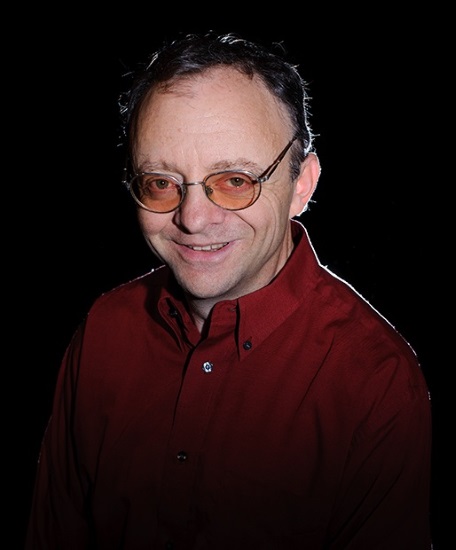
Professor Samuel L Braunstein, University of York

Professor Samuel L Braunstein, University of YorkProfessor Braunstein joined the University of York, in 2003 and is heading a group in quantum computation. He received his PhD in Physics from the California Institute of Technology in 1988. He is editor of three books "Quantum Computing, "Scalable Quantum Computing" and "Quantum Information with Continuous Variables" and serves on the editorial board of the journal Fortschritte der Physik. He initiated and is a Founding Managing Editor of Quantum Information and Computation - the first journal dedicated specifically to this field. Its first issue appeared in July 2001. |
|
| 14:45 - 15:00 | Discussion | |
| 15:30 - 16:00 |
From quantum foundations to applications and back
Quantum information science emerged from studies on the foundations of quantum physics. I’ll illustrate this, starting from Bell inequalities and the Ekert protocol for Quantum Key Distribution (QKD), to continuing to Device-Independent Quantum Information Processing (DIQIP). But the story doesn’t stop here. Quantum information science, in turn, feeds back into the foundations, asking questions like, e.g, “how does non-locality manifest in quantum networks” and “how to mitigate the detection loophole for DIQIP”. More broadly, new ways of addressing old questions emerge, for example new ways to tackle the quantum measurement problem and to ask what is “macroscopic quantumness”, both conceptually and experimentally. This is a beautiful and timely illustration of physics with applied physics and foundations nourishing each other, as it should always be. 
Professor Nicolas Gisin, University of Geneva

Professor Nicolas Gisin, University of GenevaProfessor Nicolas Gisin was born in Geneva, Switzerland, in 1952. He received his PhD degree in theoretical physics from the University of Geneva in 1981. After a post-doc at the University of Rochester, NY, and four years in industry, he joined the Group of Applied Physics at the University of Geneva where he has led the optics section since 1988. His activities range from the foundations of quantum physics to applications in quantum communications. He received two consecutive ERC Advanced Grants. In 2009 he was the first awardee of the John Steward Bell prize and in 2014 the Swiss Science prize delivered by the Marcel Benoist Foundation. |
|
| 16:00 - 16:15 | Discussion | |
| 16:15 - 17:00 | Panel discussion: future directions |
